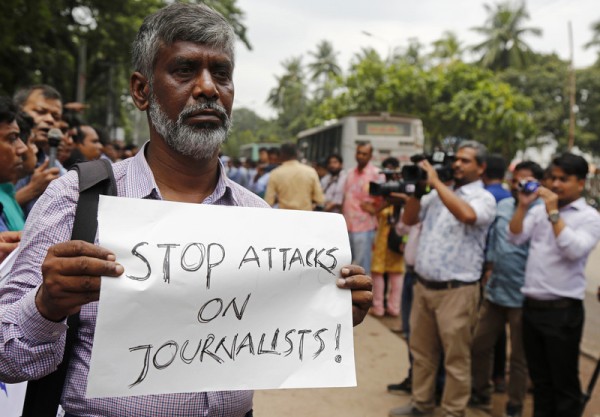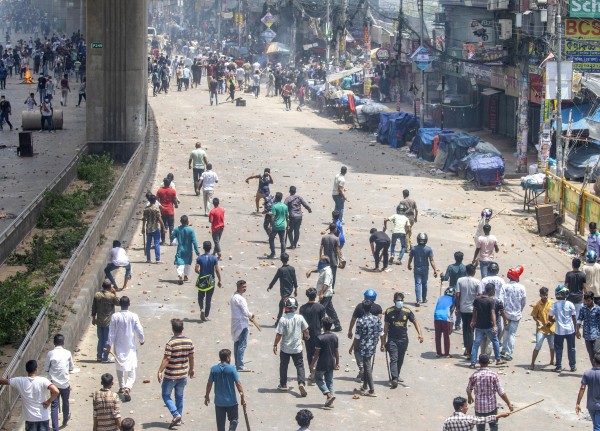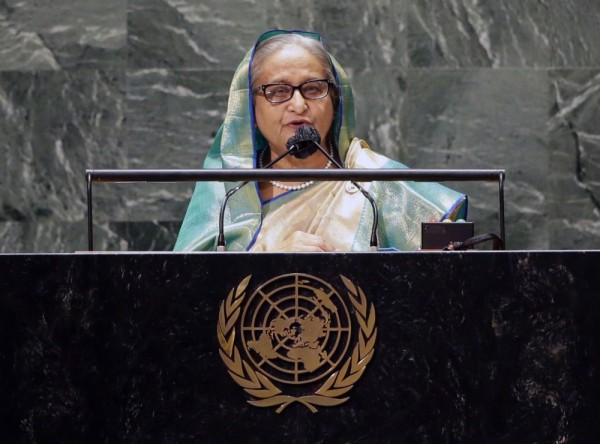Watchdog journalism is an essential element of democracy, providing a check on those in power. In Bangladesh, however, rather than being recognized for their important work, journalists exposing corruption risk being targets of retaliation. Recent International Press Institute (IPI) interviews with a human rights activist and two senior journalists in the country reveal a troubling climate for critical media – one in which journalists fear harassment for reporting information about government wrongdoing.
Most recently, Bangla Tribune correspondent Ariful Islam faced severe consequences after reports scrutinizing Kurigram Deputy Commissioner (DC) Sultana Pervin. According to news reports, Islam had reported about a renovated pond that was named after the deputy commissioner. He also had reported about irregularities regarding appointments at the DC’s office.
But instead of having his report spur an investigation, Ariful Islam was dragged from his house by about 40 persons in the middle of the night on March 13, blindfolded and taken to the Kurigram Deputy Commissioner’s office. He was beaten up and forced to give his signature to four documents without seeing the content. Then he was sentenced to jail for one year in a mobile court, a type of fast-track court used in Bangladesh.
In a mobile court the executive magistrates, who are top bureaucrats leading district administration, have a limited amount of power to convene on-the-spot impromptu trials and decide on a punishment. Islam was accused of having drugs and alcohol in his house, but no investigation or search was made there. The next day, as the incident drew huge criticism across the country, Islam was granted bail.
The outcry didn’t stop here. Bangladesh’s High Court directed the Kurigram police station officer-in-charge to record an attempt-to-murder case against four persons, including the deputy commissioner, for their involvement in the torture, beating and jailing of the journalist and also questioned the legality of the mobile court. The case was filed by the police nine days after the High Court order.
Islam’s experience appears to have struck a nerve. But he is far from the only journalist in Bangladesh to face repercussions for critical reporting. Bangladesh’s new draconian Digital Security Act, passed in 2018, has become a convenient tool for powerful politicians and party leaders to retaliate against journalists exposing corruption by filing cases against them – a development IPI previously warned about. Just recently, Saifuzzaman Shikhor, a member of parliament belonging to the ruling Awami League, filed a case under the law against 32 journalists whom he accused of defaming him by linking him to a couple who ran an escort service. One of those 32 journalists, Shafiqul Islam Kajol, also recently went missing.
“We are reporting quite a bit on corruption, so we can’t say that whenever there is corruption, a journalist is harassed. It happens (rather) when very powerful politicians or members of parliament are involved”, one of the senior journalists who spoke to IPI said, on the condition of anonymity.
“We are working under constraint and self-censorship. Even then I think we are moving forward. We are not really silenced totally”, the journalist said. “Perhaps if there was no self-censorship, we could have written more. But we are doing our job, not fully freely, but we have not given up.”
Cases like that of Islam, where a government servant misused her position to attack a journalist and hold a mobile court, remain rare in Bangladesh. Still, as a recent opinion piece in The Daily Star pointed out, the case of Ariful Islam shows that there is a real fear of being picked up from home in the middle of the night and be sentenced unlawfully. A development that is far from conducive to a journalism able to hold the powerful to account.



